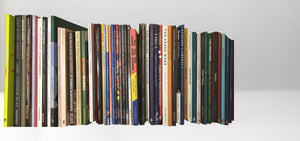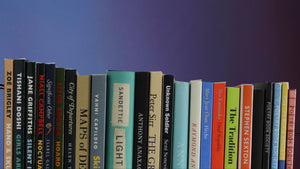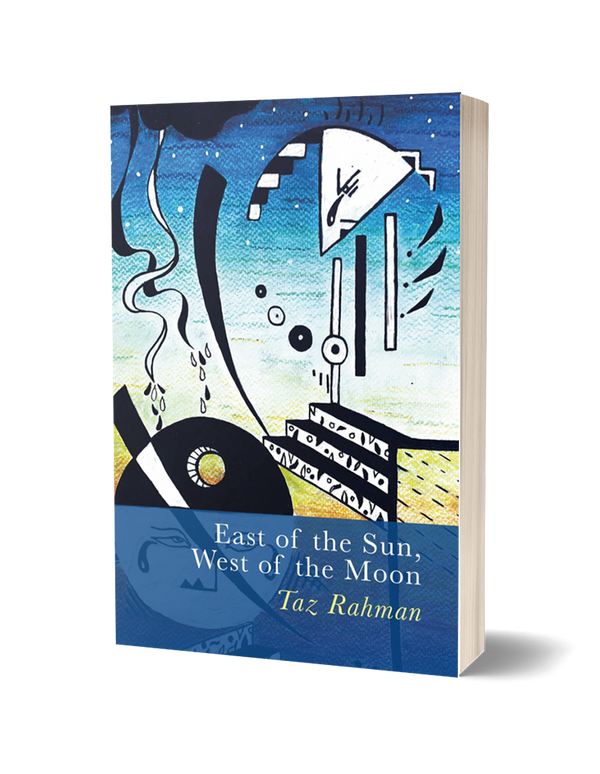East of the Sun, West of the Moon by Taz Rahman
Taz Rahman's East of the Sun, West of the Moon is named after the 1935 jazz standard, and like any great jazz tune - many of which inspire these poems - this collection is full of improvisation and innovation with language, and it demands the quality of listening carefully, of paying attention to the world. Threaded with subtlety through the collection is a sense of grief, but these poems remind us of what can be created from trauma, and how the poet can use difficult experiences to contemplate larger themes like intimacy, nature, spirituality, and language as a complex structure in which we live. Many of these poems are from the perspective of a flaneur, someone who wanders through the city - in this case Cardiff - registering impressions about the people and things observed.
This includes a deep fascination for nature as encountered in city parks and on the banks of the rivers Taff and Ely as they wind their way through the metropolis. Often this close attention reveals the awe-inspiring beauty of nature, even in the city: "wild petunia spread wings / unburden / become butterflies / trample ripples on Ely". In finding an aspect of the city beyond bricks and concrete, might there be spiritual fulfilment to be found even in this most urban landscape? Rahman's vision of the city dweller is inflected too by his Bangladeshi heritage, which appears in explorations of immigrant identity and racism, in poems like 'Sanctuary' from the viewpoint of an immigrant delivery rider, or 'Chocolate' about unreported attacks on people of the global majority.
Immigrant family history is threaded through many of these poems, offering an important perspective on life in contemporary Wales. For example, in 'Amygdala' commemorating the Welsh moral philosopher, Richard Price, Rahman applies Price's ideas about the rights of human beings to the 1859 Nil Bidroho (Indigo Revolt) in Bengal when rice farmers refused to cultivate indigo instead of food crops and defied the East India Company rulers. Alongside this and sustained attention to intimacy with the environment even in urban spaces, there is a series of love poems inspired by jazz standards and using description of nature to express lush and sensuous feeling: "I think / your top lip is // a delirious roller / passing up a storm, incubating / needs, a primer // on primal".
Like the heron that swoops over the famous 'Animal Wall', the narrators of these poems look down over the city's beauty, but also focus in on micro perspectives, animating Cardiff and setting it to life.
Seren Books

MEMBERS ENJOY 25% OFF ALL POETRY BOOKS

Join the Poetry Book Society for 25% off all books
Join the Poetry Book Society for 25% off all books

